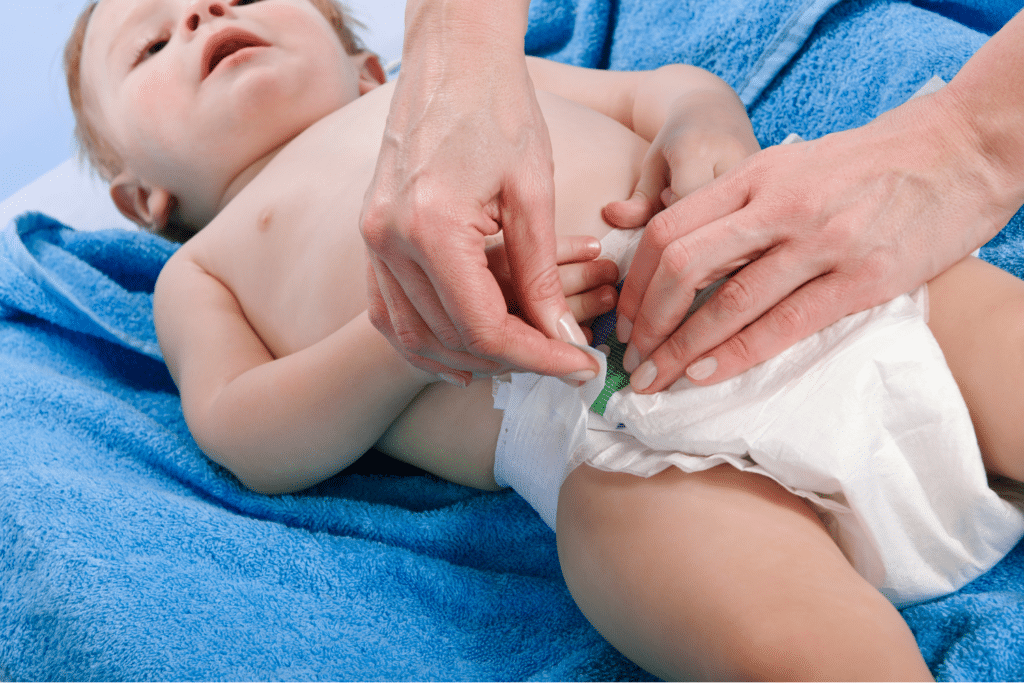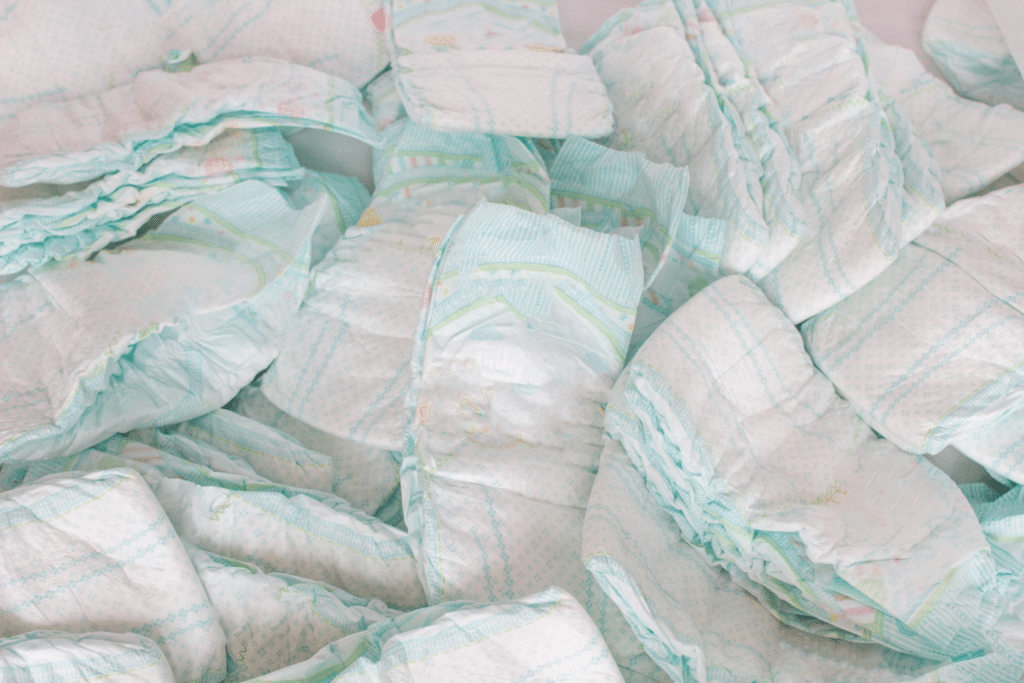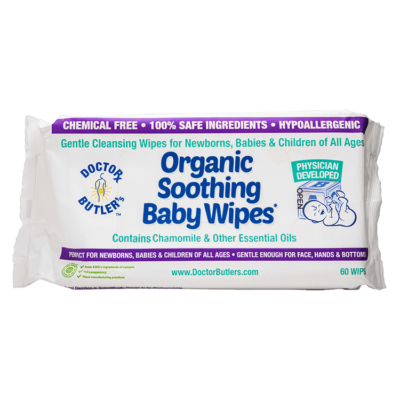A baby’s arrival is one of the most joyous days of your life, but those first few weeks sure do feel like a non-stop pop quiz. Some feel such urgency to know all the answers right this minute.
- Is this car seat set up right?
- Do I need to call the doctor about this rash?
- Is he getting enough to eat?
- Why can’t I swaddle like the video?
- How often should I change a baby’s diaper?
This parental pop quiz is an open book thanks to the internet. We can find the answers to all the questions we forgot to ask or aren’t sure about.
“How often should you change a baby’s diaper?” is an important question to ask because diaper changing habits affect your baby’s health and well-being. In this guide, we’ll answer this fundamental question, plus a few other diaper questions you maybe haven’t thought of.
How Often Should I Change My Baby’s Diaper?
How often you should change your baby depends on how frequently they soil the diaper with urine and bowel movements. Typically, a baby needs a diaper change every two to three hours. It may take a few weeks to figure out your baby’s bowel movement and urination patterns.
You can expect a newborn to go through around 12 diapers per day. This number decreases incrementally as your child moves through infancy to the toddler stage. Factors like illness can temporarily scale back how many times your baby needs a diaper change.
The frequency of diaper changes makes diapers one of the most costly expenses with having a new baby. Many parents don’t want to waste a clean diaper, so they do periodic “diaper checks” to make sure that a diaper change is needed before they remove and discard it.
However, we suggest against waiting to change your baby’s diaper and recommend staying on top of your baby’s bowel movements as early as you can. It is better to not make delaying your baby’s diaper change a habit.
Why Should You Change a Baby’s Diaper This Often?
A late diaper change here and there is probably okay, but to reiterate, when there is a habitual delay with diaper changes, this leads to miserable circumstances. Newborn babies are even more prone to problems with diapering because of their sensitive skin.
Common problems associated with delayed diaper changes are:
- Diaper rash.
- Skin chafing.
- Infections such as yeast (males too), bladder, and sometimes Staph.
- Lack of digestion tracking (parents count bowel movements to ensure the baby is getting enough to eat).
- Increases the risk for “blowout” diapers, leaking, and diaper breakage.
- Baby might reach in their diaper and touch the waste because it’s bothering them.
- Worsening odor (the longer you wait, the more it smells).
As you can imagine, many of these uncomfortable circumstances would put your baby in a bad mood. Changing your baby on time keeps your baby happy and healthy.

When to Change a Newborn’s Diaper
“How often should I change my newborn’s diaper?” is a question that many doctors have probably heard. Because they feed more frequently, you can expect to be changing a newborn’s diaper more often (every two to three hours). Diapers with feces should be changed right away, while slightly wet diapers are not yet “full.”
Diapers full of urine will swell, and diapers with feces will have that distinct odor. When you use scented diapers, this masks the smell of feces so you may not realize it’s time for a fresh diaper.
Please be sure to gently, but thoroughly clean all areas of your baby that have come in contact with a moderate of urine or any contact with feces at all using a baby-safe soap or wipe, and dispose of all dirty materials after.
Babies and parents tend to set a pattern over time as parents begin to sense when to change diapers. Eventually, parents get used to these cues. Some babies make a distinct facial expression when having a bowel movement, or newborns may cry when a full diaper makes them uncomfortable.
Babies with more sensitive skin may not be able to tolerate even somewhat damp diapers and will need more consistent diaper changes.
When to Change Cloth Diapers?
How often should you change a baby’s diaper if you are using cloth? Is there a difference? With all the benefits of cloth diapers, there is a catch.
Cloth diapers are not as absorbent, so this means that they have to be changed more frequently than disposables. You can expect to change cloth diapers every 90 minutes.
Cloth diapers also require a deep cleaning as well as poop scooping, which may not be the most enjoyable experience in the world. Even still, on average, you can save half the amount of money you would spend on disposable diapers by switching to cloth diapers.
You may want to consider learning about all of the pros and cons to both styles of diaper if you are thinking of switching.
Is It Better to Change Diaper Before or After Feeding?
To change the diaper before or after feeding depends on how you prefer to coordinate your day, but many parents prefer to do a diaper change before or during feedings. This allows the baby to get the sleep they need after a bottle or nursing, as a diaper change would wake them up. However, if your baby has a bowel movement after a feeding, the diaper should be changed right away.
Your baby needs consistent rest and nourishment, so scheduling diaper changes in a convenient manner will always make the process more convenient for everyone involved.
How Often Should I Change a Baby Diaper at Night?
Going without sleep for the first few months of infancy is rough on parents. Parents are understandably relieved to finally be able to sleep at night when their baby finally settles into a somewhat normal diurnal sleep pattern.

So, if the baby sleeps through the night now, do you still need to check the diaper every few hours? Good news, sleep-deprived moms and dads! The consensus is that it’s okay to let your baby sleep without changing diapers at night.
The rule of thumb is that wet diapers at night are okay, but number two diapers should be changed when you catch them. With some skill, you might be able to change a bowel movement diaper without waking your baby (keeping the lights dim, using warm wipes, being very quiet about it, etc.)
Some babies split sleeping hours between night and day. If your baby takes long naps during the day because they still haven’t adapted to nighttime sleeping, the same would apply for those long naps. Let them get their usual full nap session before a diaper change.
Nighttime Tips
- Use nighttime diapers (these are more absorbent).
- Do one last diaper change before sleep and apply a skin protective cream or ointment to the skin.
- Change your baby’s diaper as soon as they wake up.
How Long Can a Baby Stay in a Wet Diaper?
Competing brands have worked very hard to develop the driest and most absorbent diaper. And yes, wet diapers can wait a bit longer than bowel movement diapers. But babies get grumpy when they are sitting in a wet diaper, and who can blame them?
A little bit of wetness is not an emergency, as diapers are designed to absorb some urine. However, after your baby has relieved themselves more than twice, the diaper starts to swell. A diaper that is too full can leak and even break open. Also, soaking in their own urine for hours makes babies more susceptible to diaper rash and infection.
Bowel movement or not, it’s best not to let your baby sit long in a full diaper. If the diaper is sagging between their legs, it’s definitely time for a fresh diaper. Avoid getting in the habit of delayed wet diaper changes, as this leads to painful skin irritation and infections.
Should I Wipe My Baby After Every Diaper Change?
While some parents use wipes for every diaper change, many find it unnecessary to use wipes for urine diaper changes. By design, a moderate amount of urine is soaked up by the diaper so the area will be clean enough not to need wiping.
However, if the baby’s skin is drenched in urine, wiping is needed for cleanup, and the skin should be dry before putting on a new diaper. But wiping is always needed after a bowel movement. When wiping, do so front to back to keep fecal bacteria away from the front (especially important for baby girls).
Many baby wipes are flimsy and you need several to clean it all up. We designed our all-natural organic baby wipes to do a better job of cleaning up feces by making them thicker and larger than your average baby wipe. Our wipes are also perfect for sensitive skin and contain nourishing botanicals.
“Best Help Ever! This product is better than the prescription my doctor gave. I’m sticking with what works.”
Verified ReviewerSo How Often Should You Change a Baby’s Diaper?
Faced with questions like, “How often should you change a baby’s diaper?” parents find the answers as they go through the new baby experience. Every family eventually settles into a feeding and diapering schedule that works best for Baby.
Generally, you will change a newborn’s disposable diaper every two to three hours, and a cloth diaper every 90 minutes. Newborns eat more, so they use up more diapers. As babies grow up and their eating habits change, the number of diaper changes will decrease.
Through experience, parents also pick up a preference for diapers. A survey found that over half of consumers stick with one brand of diaper. But what about baby wipes? Do parents have a preference for baby wipes?
Some parents will use whatever wipes were gifted to them from a baby shower, but these parents may soon learn that not all wipes are created equal. Some wipes include fragrance as an ingredient that irritates the skin or are frustrating to use because they just won’t get the baby’s bottom clean.
Doctor Butler’s set out to create products that would ease the pains of maternity, so it seems only natural to develop all-natural baby wipes. Not only are our wipes made of thick, organic medical-grade cloth, but they are also fragrance-free and soothe the skin with botanicals.
Tired of baby wipes that don’t clean well? Have a baby with sensitive skin issues? Does using fewer wipes sound good? Try our Organic Baby Wipes risk free! If they aren’t right for your baby, we’ll refund the full amount of your purchase.

